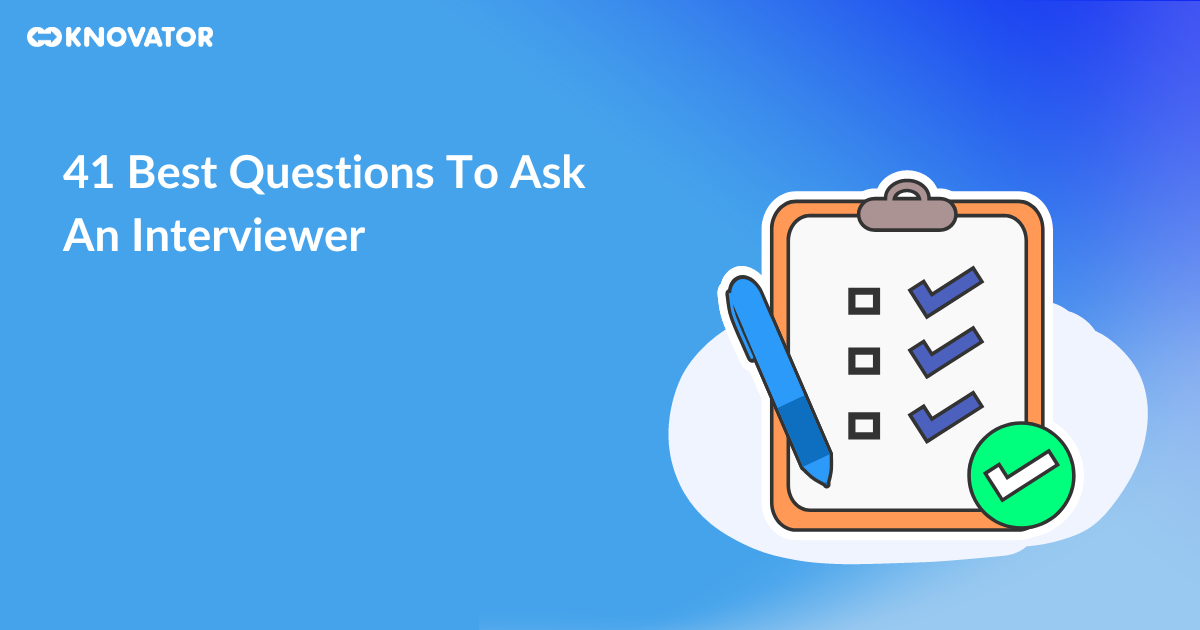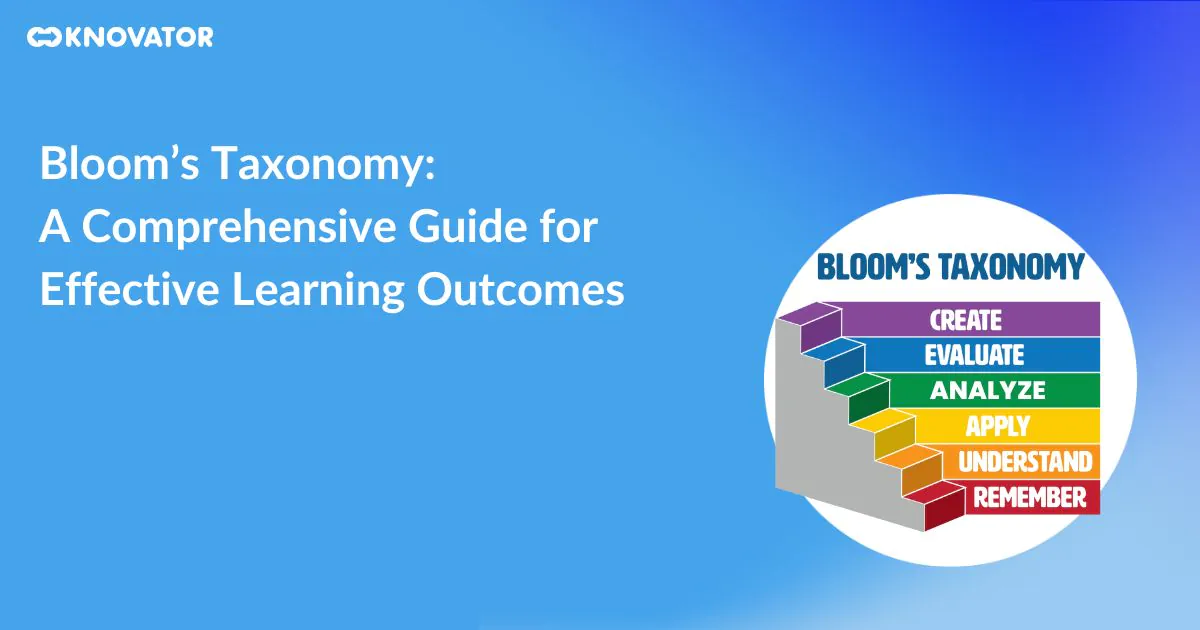Are you looking for platforms where you can help your employees learn new skills and enhance knowledge from the comfort of their homes? With the rapid growth of online education, there are now more opportunities than ever to develop skills. Whether you want your employees to master a new language, improve their coding abilities, or dive into digital marketing, online learning platforms have covered everything.
If you’re not aware of these fantastic online learning options, don’t worry. We’ve got you covered.
This post will explore the 15 best online learning platforms that help develop skills. These platforms offer various courses and resources to suit various interests and skill levels.
So, keep reading!
What is an Online Learning Platform?
An online learning platform is like a digital school where people can create and sell courses. It’s like an online marketplace for learning. Like regular schools, these platforms give students a safe place to study, access course materials, and sometimes talk to teachers and other students.
These platforms have many useful things like lessons, assignments, quizzes, ways to interact and learn together, certificates when you finish, and places to chat with others.
So, the term “learning platform” is like a one-stop shop for teachers and students. Teachers can make and sell their courses, and students can find all the learning stuff they need in one place. It’s like having a store for learning on the internet.
These platforms are becoming super important because they make learning easy and accessible. You don’t need to go to a physical classroom; you can learn from home. You only need an internet connection and a computer or phone device.
So, online learning platforms are like a treasure chest of knowledge waiting for you to explore. They’re a fantastic way to learn new things and improve yourself, and they’re getting increasingly popular every day.
Online Learning Platforms vs. Online Course Platforms vs. LMSs
It’s easy to mix up online learning platforms, online course platforms, and LMSs, but it’s important to distinguish between them. Let’s begin with online learning platforms.
Online learning platforms are like bustling marketplaces, mainly focusing on learners or “buyers.” These platforms handle much of the work related to marketing your courses, expanding your audience, and creating your sales funnel. They prioritize the front-end aspects of your business, such as the course marketplace and the courses themselves.
However, this convenience may come with limitations. For instance, if you desire maximum flexibility in pricing and robust functionality for collecting and analyzing user data, you might be somewhat restricted, especially when personalizing your courses with your branding.
On the other hand, online course platforms are more focused on the backend. They often feature instructor-centered, cloud-based software that facilitates course creation and the development of effective learning environments. You can upload various learning materials and organize them into structured learning paths.
Many course platforms enable you to create your marketplace, manage pricing plans, memberships, and revenue, and control vital user analytics, branding, and marketing strategies to maximize your business growth.
Now, for learning management systems (LMSs), prioritize delivering training to large groups, like employees or partners, with less emphasis on sales and marketing. In addition to managing users, content assignment, and learner progress tracking, many LMSs have course authoring tools built in, allowing you to create new online courses.
So, LMSs are advanced course platforms offering greater freedom and flexibility in course creation and interaction. Understanding these distinctions helps you navigate the wide range of eLearning products. Even after selecting a platform type, you’ll still need to make specific choices, which we’ll explore further in the following sections.
Criteria for Choosing a Platform
When picking the right online learning platform for your team, there are some important things to consider. Let’s break them down in simple terms:
1. User Interface
This is how the platform looks and feels. You want it to be easy to use. Imagine it’s like choosing a book with a nice cover and pages that are easy to read. A good user interface makes your learning experience enjoyable.
2. Course Variety
Think of this as the menu at a restaurant. You want lots of options to choose from. A platform with various courses means you can learn many different things. So, check if the platform offers the subjects your employees are interested in.
3. Pricing
This is like checking the price tag before buying something. Make sure the platform’s cost fits your budget. Some platforms offer free courses, while others require payment. Look for one that offers value for your money.
4. Additional Features
Consider this like getting extra toppings on your ice cream. Some platforms offer cool features like certificates, quizzes, or interaction with other learners. These extras can enhance the learning experience, so it’s worth looking for them.
Therefore, when choosing an online learning platform, think about how easy it is to use (user interface), the variety of courses it offers, whether it fits your budget (pricing), and if it comes with any extra goodies (additional features). This way, you can find the most suitable platform.
Top Online Learning Platforms
Let’s explore different online learning platforms, course platforms, and LMSs.
Online Learning Platforms
Let’s explore the Online Learning Platforms:
1. Udemy Business
If you’ve explored online learning before, you’ve probably come across big names like Udemy and Udemy Business. Udemy Business is like a big library with over 14,000 courses for more than 9,500 companies, covering many subjects.
Udemy Business stands out for its ease of use, making it accessible for learners of all levels. Its user-friendly interface ensures a smooth learning experience without technical hurdles. Quality control measures are in place to maintain the course standard, ensuring learners receive valuable and reliable content.
Furthermore, Udemy Business is designed to integrate seamlessly with Learning Management Systems (LMSs), making it a versatile tool for businesses and organizations.
Who is it for?
Udemy Business is an excellent online learning platform for business owners and learning professionals who can’t spend too much time or money making their courses. It’s affordable and offers many courses on different practical skills that can benefit almost anyone.
However, if your training team is focused on acquiring specific skills tailored to your unique business needs, there’s no assurance that the courses will align perfectly. Therefore, Udemy Business is an excellent online learning platform for business teams aiming to develop broader, more general skills.
Why did we choose it?
Udemy is one of the biggest places to learn online. They say they’re the top global spot for learning and teaching. With more than 213,000 courses and over 59 million learners, it’s hard to argue with that claim!
Pricing
Udemy Business has two pricing options:
- Team Plan (for 5-20 users): Costs $360 per user per year.
- Enterprise Plan (for 21 or more users): You must contact their sales team for a personalized price.
They also provide a 7-day free trial.
2. Skillshare
Skillshare is another major player in online learning, offering over 35,000 courses to more than 5 million learners. It’s a go-to for creative professionals, with courses on graphic design, animation, photography, and more. Skillshare’s community mainly includes individuals, entrepreneurs, and small businesses.
Who is it for?
For businesses with a creative team, Skillshare is a valuable resource to enhance their skills. It offers a wide range of courses relevant to design and creativity. What sets Skillshare apart is its unique feature of allowing users to share their work and interact with peers and instructors, fostering inspiration and connections.
To become an instructor on Skillshare, expertise in the creative industry is essential, including business-related subjects like marketing, business analytics, leadership, and management. This platform offers a great opportunity for experts to share their knowledge and skills in these fields.
Why did we choose it?
One of the standout features of Skillshare is that it is a community-centered platform. Unlike many other platforms, learners here can engage with each other, creating an interactive and engaging learning experience that feels more like a classroom discussion than just watching videos on your own.
Pricing
- Starter Plan (for 2-19 users): $159 per user/year.
- Enterprise Plan (for 20 or more users): You can get a personalized quote by contacting their sales team.
- Revive Plan (for 51 or more users): Contact the sales team for a custom quote.
Additionally, Skillshare provides a 1-month free trial for those interested in exploring their platform.
3. LinkedIn Learning

LinkedIn Learning provides a high level of interaction with quizzes and practice exercises accompanying their short learning videos. Upon finishing a course,you get a certificate you can show off on your LinkedIn profile.
Who is it for?
People and businesses wanting to improve their business, technology, or creativity skills will find LinkedIn Learning great. It’s especially good because it has short courses so you can learn quickly. It is perfect for businesses teaching employees away from the office or for busy individuals and entrepreneurs who want to learn quickly.
Why did we choose it?
LinkedIn Learning uses microlearning and offers a lot of interaction. But what’s even better is that instructors must show they’re true experts in their field and are excellent at teaching. Just being enthusiastic about a topic isn’t sufficient on this platform.
Pricing
LinkedIn Learning has two options for individuals who want unlimited access:
- Yearly Plan: It costs $26.99 per month.
- Monthly Plan: It’s priced at $39.99 per month.
You’ll have to contact them for a personalized quote for team pricing. They also provide a 1-month free trial.
4. Coursera

Coursera mainly offers courses related to business and sciences, like computer science, data science, health sciences, and physical sciences. It’s a hub for serious learning with a strong focus on these areas.
Who is it for?
Coursera is popular among students seeking a top-notch education with certificates and university degrees. It’s also trusted by over 100 big companies, 6,000 colleges, and government organizations.
If you want to teach and earn on Coursera, it’s best to be linked to a respected school or a leading business. But don’t worry; even if you don’t fall into these categories, there’s still a chance for you to get involved.
Why did we choose it?
Coursera is highly regarded as a top-notch education platform. They team up with world-famous universities and groups to develop their courses, ensuring that top experts lead all lessons.
Pricing
Coursera offers three choices:
- Single-course plan: It costs between $49 to $79 per month.
- Coursera Plus Annual: This plan gives you access to all courses for $59 per month.
- Coursera Plus Monthly: You can access all courses for $399 annually.
They also have a 7-day free trial available.
5. edX

Like a real university, you can find courses on nearly any topic, whether art, science, business, or medicine. EdX has over 3,000 courses, including some that are free, grouped into 300 programs.
Who is it for?
EdX is designed to resemble formal education, making it a great choice for college and university students who want a flexible, high-quality education. It’s more focused on academic subjects, so it’s popular among learners who want recognized certificates for job opportunities.
If you’re a business or a training team looking for a platform with deals for multiple users, consider exploring “edX for Business.” It operates similarly to the regular platform, offering a wide range of courses organized for employee training, and the quality of the courses is top-notch.
Why did we choose it?
EdX, much like Coursera, is a trusted place for learning. They have courses taught by some of the best universities and top companies globally, so the quality is top-notch. Plus, when you finish a course, you get a verified certificate to prove it.
Pricing
- EdX offers free courses, but if you want the “Verified Track” (paid courses), the cost can vary from $50 to $300. If you’re going for a master’s degree, which includes more courses, it can go up to $10,000 to $25,000.
- If you’re looking at EdX for Business, it’s $349 per learner per year for small teams or businesses. You’ll need a customized price for larger organizations by contacting their sales team.
Online course platforms
Let’s explore the online course platforms:
1. iSpring Market

On iSpring Market, the courses can have fun things like quizzes that get graded automatically, interactive activities where you drag and drop things, and even pretend scenarios where you make choices that change the story. It’s like making learning more exciting and interactive for everyone.
Who is it for?
iSpring Market is an excellent choice for course creators who want the freedom to create various online courses without limitations on content type and interactivity levels. It’s user-friendly and packed with features, making it ideal for creators who want to launch their courses quickly and start earning.
Why did we choose it?
iSpring Market is one of the rare platforms that supports SCORM, which allows instructors to offer highly interactive and immersive content for an engaging learning experience. It also provides robust user and content management features and a powerful reporting system. In short, iSpring Market combines a Learning Management System (LMS) and a marketplace.
Pricing
iSpring Market provides four pricing options:
- Five hundred users with 25 GB storage: $77 per month.
- One thousand users with 50 GB storage: $147 per month.
- Two thousand users with 100 GB storage: $277 per month.
- Custom plan: You can get a personalized price by contacting their sales team.
They also offer a 14-day free trial for you to try it out.
2. Kajabi

As a course creator, you can upload videos and other materials for each lesson when building courses. Kajabi also lets you set up learning paths with automation. For example, once a learner finishes a set of lessons, they can automatically unlock the next set based on certain conditions.
Who is it for?
Kajabi is tricky to use, especially if you’re not tech-savvy. It’s best for folks ready to invest time and effort, especially if you want to create simple text or video courses and make money from them.
Many entrepreneurs and individuals are willing to pay more for Kajabi because it’s packed with features for sales and marketing. It’s perfect to earn money by using its automated tools for finding new customers, sending emails, and managing sales.
Why did we choose it?
Kajabi can build sales funnels, create marketing automation, and customize things to suit your needs.
Pricing
Kajabi has three pricing options:
- Basic: $149 per month
- Growth: $199 per month
- Pro: $399 per month
You can also try it for free for 14 days.
3. Podia

Unlike many platforms where your digital products and memberships are separate, Podia integrates them into one place. This makes it easier for your customers to subscribe and increases your chances of making sales.
However, it doesn’t have a built-in tool for creating courses. You’ll need to organize your content first and then upload it.
Who is it for?
Podia is a top choice if you want quick payouts without transaction fees. It’s super easy to use, especially if you’re not tech-savvy. But keep in mind that this simplicity means you have less control.
Podia might not be the best fit if you need advanced marketing tools, branding options, and customization. It’s most helpful for those with simple courses and basic marketing needs.
Why did we choose it?
Podia is perfect for beginners who want to sell courses without needing tech or design skills. It’s great for selling digital products.
Pricing
Podia offers three plans:
- Mover: $39 per month
- Shaker: $89 per month
- Earthquaker: $199 per month
You can try it for free for 14 days.
Learning Management Systems
1. SAP Litmos

Interestingly, it’s not just a learning system; it’s also a training platform with a big library of resources. They cover compliance, sales, security, and employee skills training. The goal is to help businesses have smart and well-informed teams.
Who is it for?
SAP Litmos is designed mainly for businesses, and it’s suitable for companies of any size, whether they make their courses or get them from outside sources. However, its big library of courses might only be necessary for some businesses. If you want to create your course content, Litmos might seem like it has too much.
Why did we choose it?
Litmos covers everything you’d need in a learning system. Plus, its course library is very useful for those who don’t want to create courses themselves.
Pricing
Contact their sales team for a personalized price. They also offer a 14-day free trial.
2. LearnUpon

Who is it for?
LearnUpon primarily targets businesses but also works as an online education platform. It’s ideal for creators of versatile content. LearnUpon stands out with its advanced user management features, particularly the learning portals, showing its innovation. If you’re looking for a platform that keeps improving, LearnUpon is a good choice.
Why did we choose it?
LearnUpon offers a straightforward training platform with strong LMS features. It’s user-friendly without overwhelming users with unnecessary features. Plus, you can personalize your training program.
Pricing
LearnUpon has three pricing tiers:
- Essential (150 active users, two portals): $1,249 per month
- Premium (500 active users, three portals): $1,999 per month
3. Udacity

Who is it for?
Udacity is mainly for individuals seeking advanced tech skills, including programming, data science, and artificial intelligence. It’s a good fit for those aiming to boost their career in the tech industry.
Why did we choose it?
Udacity offers in-depth tech courses developed with industry experts. It provides real-world projects and career support, making it a strong choice for those pursuing tech careers.
Pricing
Udacity uses a subscription model known as a “Nanodegree” program. Prices vary depending on the specific Nanodegree you choose, but they usually range from $399 to $699 monthly. Scholarships and free courses are also available.
4. MasterClass

Who is it for?
MasterClass is designed for individuals seeking to learn from the world’s top experts in various fields, including arts, entertainment, sports, and more. It’s for those who want to gain insights and inspiration from the best in the business.
Why did we choose it?
MasterClass offers a unique learning opportunity from renowned experts. It provides high-quality, well-produced lessons that can be both educational and entertaining.
Pricing
MasterClass offers an annual membership priced at $180 per year, which provides access to all courses on the platform.
5. Blackboard Learn

Who is it for?
Blackboard is commonly used in schools, including K-12 and higher education, by both teachers and students.
Why did we choose it?
Blackboard is a strong learning platform for schools. It lets teachers share content, communicate with students, and give grades electronically. It includes extra tools like e-portfolios, wikis, and blogs to enhance the learning experience.
Pricing
Blackboard starts at $9,500 per year. It also offers a free 30-day trial.
6. Canvas

Who is it for?
Canvas is a highly secure learning platform suitable for organizations and educational goals. It’s great if you want different interfaces designed for a specific audience. Using the basic features is easy, but fully utilizing them requires some learning.
Why did we choose it?
Canvas is excellent for schools and universities. Its built-in tools enhance interactions and communication with students. It offers various communication channels, each serving a unique purpose.
Pricing
Canvas offers both paid and free options.
- Paid: You need to contact sales for a personalized price.
- Free: The free version includes essential features like creating courses, quizzes, video conferences, tailored learning with Mastery Paths, the Canvas mobile app suite, and third-party app integration.
7. Moodle

Who is it for?
Moodle is primarily designed for academic settings, supporting SCORM content and offering good user management features. However, it can also work well for government or small/non-profit organizations due to its competitive pricing (it’s free) and extensive features.
Why did we choose it?
Moodle is a top choice for the academic sector due to its diverse tools that encourage student engagement in online learning.
Pricing
Moodle itself is a free platform. However, there are costs associated with hosting your Moodle site and certain third-party integrations.
Find Your Path to Learning Success
We’ve explored diverse options in this journey through the best online learning platforms. Whether you’re an individual looking to upskill, a business aiming to train your team, or an educator seeking a platform for your students, there’s a solution tailored to your needs.
Remember, the right platform depends on your specific goals, budget, and technical expertise. Explore free options like Moodle and Canvas for academic needs, or invest in paid solutions like Udemy Business and Skillshare for specialized skills. Each platform offers a unique experience, so choose wisely, embrace lifelong learning, and start on your path to success.
Happy learning!













